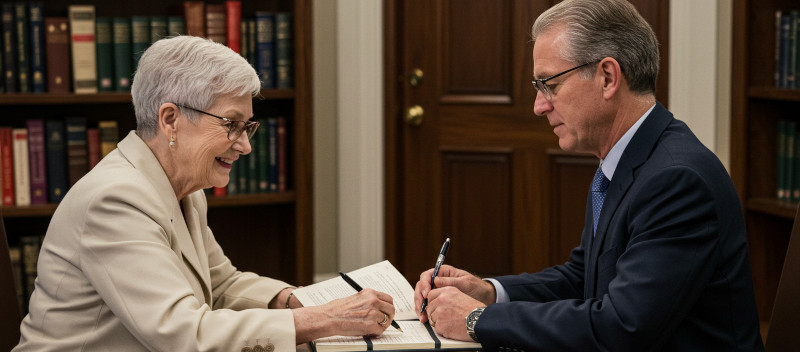Jump to Section
Summary
Disputes regarding family trees can complicate the probate process, often leading to tension and prolonged legal battles. Courts handle these disputes with a structured approach, taking into account various factors such as evidence, existing wills, and applicable state laws. Understanding how these disputes are navigated helps legal professionals support their clients more effectively. This article explores the challenges involved, the step-by-step processes courts follow, common questions surrounding the issue, expert tips, and valuable resources to aid in resolving family tree disputes during probate.
Overview
When a loved one passes away, the distribution of their estate becomes the focus of the probate process. However, disputes surrounding family trees can create significant challenges for executors and beneficiaries alike. Family disputes may arise due to differing opinions on who is entitled to inherit or confusion about the deceased’s relationships. The courts have specific procedures for addressing these disputes effectively, ensuring that the final decisions respect the will and applicable laws.
Common Challenges
Family tree disputes during probate can be complex and frustrating. Some of the most common challenges include:
- Ambiguities in Wills: If a will contains unclear language or is poorly drafted, it can lead to disputes over intended beneficiaries.
- Testamentary Capacity: Questions may arise about whether the deceased had the capacity to make a valid will.
- Validity of Claims: Disputes often occur when multiple individuals claim to be heirs or beneficiaries.
- Adoption and Legitimacy Issues: Questions may arise regarding the legitimacy of claims from adopted individuals or step-family members.
- State Laws: Different states have varying inheritance laws, which can complicate claims based on family relationships.
Step-by-Step Process
When courts are faced with disputed family trees during probate, they follow a systematic approach to resolve the issues. The process generally includes the following steps:
- Filing the Will: The executor must file the will with the probate court, along with any necessary documentation related to the estate.
- Notification: Interested parties, including potential heirs and beneficiaries, must be notified about the probate proceedings.
- Gathering Evidence: Parties involved may need to present evidence of their claims, such as birth certificates, marriage licenses, and other documentation supporting their relationship to the deceased.
- Discovery Process: In some cases, a formal discovery process may be initiated, allowing parties to gather more evidence and take depositions.
- Hearing: A court hearing may be scheduled to allow parties to present their arguments. During this hearing, the judge will evaluate the evidence and testimonies.
- Judgment: After considering all information, the court will issue a ruling that resolves the dispute and outlines the distribution of the estate.
For more information on this process, visit HeirPros.com.
FAQs
Here are some frequently asked questions about family tree disputes during probate:
- What steps should I take if I believe I am a rightful heir? Gather evidence, consult an attorney, and ensure you’re aware of the probate proceedings.
- Can temporary guardianship affect inheritance claims? Yes, having a temporary guardian may complicate claims if it affects the individual’s legal status.
- How long do probate disputes usually take to resolve? It varies by case complexity, but disputes can take several months to years.
- What happens if someone contests the will? The court will conduct a hearing to evaluate the validity of the will and any claims made against it.
- Are witnesses required during the probate process? Yes, parties may need witnesses to support their claims during disputes.
Expert Tips
To navigate disputes over family trees effectively, consider these expert tips:
- Document Everything: Keep detailed records of communications and any relevant documents.
- Consult Legal Professionals: Having a knowledgeable attorney specializing in probate law can provide guidance through the process.
- Stay Objective: Try to remain calm and objective; emotional responses can complicate matters.
- Know State Laws: Familiarize yourself with the laws governing inheritance and probate in your state.
Related Resources
For further reading on legal guidance during probate and heir searches, check out the following resources:




